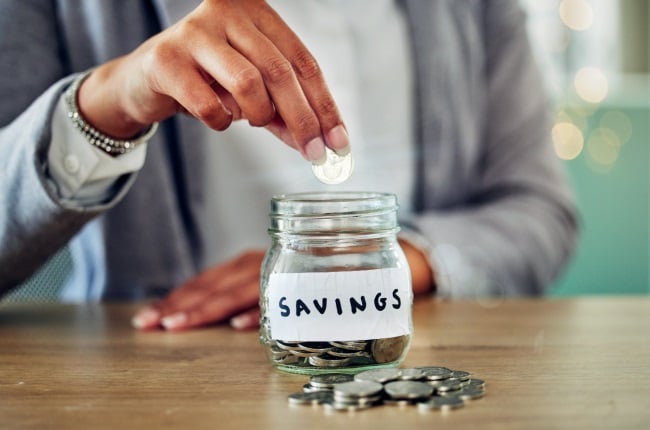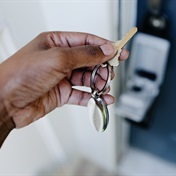
When your bank account becomes a playground for debit orders and you’re left with very little money to see you through to the next payday, the concept of financial freedom may seem lightyears away from your reality.
But, according to experts, financial freedom can be achieved by anyone – even you, who is doubting herself.
1. Define your freedom
Financial freedom isn’t really about being rich, but more about living a fulfilled life whereby you can afford to buy things within your means and you can comfortably attain the things you want without breaking the bank.
For some, it’s about being able to take the family away for a holiday at least once a year, others want to enjoy their home without having to deal with monthly bond repayments, while others want to be able to do what they love without having to worry about money.
But what is financial freedom to you?
Founder of Financial Fitness Bunnies, an online financial education movement, and the author of personal finance book, What’s Your Move?, Nicolette Mashile says, “Financial freedom starts with understanding what finance is supposed to do in your life. If you understand that it’s access to a lifestyle that you want to live, then you’ll realise that that’s what you’re working towards. And the day you reach that type of lifestyle is the day you can declare yourself financially free.”
She adds that it differs from person to person purely because we all come from different backgrounds and, by virtue of that, we all have different targets.
“Let’s move away from a specific number or a specific value of portfolio to say somebody is financially free because we all have different definitions of financial freedom. You’re not wrong if you say your financial freedom can only be reached when you reach R10 million, but you have to dig deep and examine the reasons why you want R10 million? What type of a life are you going to live with that R10 million?,” she asks.
2. Set financial goals
Saving doesn’t make sense if you don’t know what you’re saving for. It’s not easy paying off debt when you don’t have a bigger plan in place, like what you plan to do with your money once your debts are paid up. So, it’s important to set concrete financial goals with amounts and timelines.
Write down the figure that you want to see in your bank account in terms of cash that is always available to you and work towards that.
Look at long-term investment options and speak to a financial adviser about building an investment portfolio for your future. This is how you move from merely being a consumer to being an investor.
READ MORE | Financial resolutions - 5 ways to stretch your salary each month
3. Spend smart
Where’s the fun in making money and not enjoying any of it? The very definition of financial freedom is being able to manage your money well so that you can meet your needs and still be able to enjoy it. After all your bills are paid, you’ve made your savings goals and invested some money, make sure you spend the money available to you wisely.
If you’re spending money without a budget, then you will run the risk of overspending. So it’s a good idea to keep track of where your money goes with every purchase.
“Work on a budget – look at what you earn and subtract your financial obligations. If you’re spending more than you’re earning, then you are not financially free and need to look at ways to reduce your spending or increase your income,” says Old Mutual’s strategic marketing manager Karabo Ramookho.
A budget shouldn’t be about what you can’t do but what you can.
“You can live and be financially free as you’re going about your life, as long as you keep check on your budget and ensure that you’re living within your means,” explains Mashile.
A budget can help guide your spending and ensure that you save for your goals.
“Be honest with yourself and have that conversation to say, ‘I’m living beyond my means and I need to cut down on expenses or I need to increase my income ability’,” says Mashile.
4. Raise your earning power
Financial freedom also means investing in yourself and treating yourself as an asset. Look at where you are in life and see if you’re satisfied with how things are going. You may need to make a few changes here and there.
“You need to increase the value of who you are so that you are able to unlock a level of living that would prove that you are financially free,” says Mashile.
Your career gives you an income, but are there other ways you can improve on that? If you’re working hard but are underpaid, or your income was affected by the effects of the Covid-19 pandemic, or, you may have a skill that is under-utilised that could be bringing you extra income. Don’t stay stuck, invest in personal and career development.
It may be that you need a mentor or a life coach to help you climb up the career ladder, start a side hustle, or a business.
“Having a second income stream will enable you to reach your savings goals quicker,” says Ramookho.
READ MORE | ‘It is never too early or too late to teach them’ - 5 tips to prepare your kids for financial
5. Clear your debt
Good debts add value to your life, but the goal should be to clear all debt to free up some money for saving or investing.
“Good debt is debt that you incur to purchase anything that will grow in value or potentially generate long-term income, like a home loan or a student loan. So provided you service your debt and try to pay it off quicker (if you can), your paid -off home can, in the long run, become part of your investment strategy and therefore improve your chances of attaining financial freedom,” says Ramookho.
If you’ve already incurred bad debt such as credit card debt and unnecessary loans, your first step to financial freedom would be to pay them off. Start with the debt with the highest interest rate. Once that is paid up, use the money you’ve freed up to pay off your next debt.
6. Saving and investing
“Saving is preserving money for later use; a financial reserve that you can tap into without having to go out and borrow,” says Nicolette.
And this is important, especially for emergencies. You can also save for big purchases such as buying a car, putting down a deposit on a house, or a short-term goal such as throwing yourself a birthday party or going on a holiday.
However, once you reach your financial goal and you use your savings, that money is gone. So, to have a secure financial future, you need to save to invest. Invest your savings in income-producing assets and investment portfolios that will grow your money and earn you compound interest. Speak to your financial adviser about what type of asset you should invest in so that you understand the level of risk and return on the investment. Financial freedom may look impossible, but set yourself up for the challenge and you’ll see how money works for you and not the other way round.
Struggling to make the right decisions for a better financial future? Worry no more, Old Mutual’s Karabo Ramookho helps you stay on the right track with your money, thanks to these do’s and don’ts:
Do stay invested
If you have investments and you’re struggling to continue making your payments, speak to your financial adviser about the options that are available to you.
Do pay of your debt
If you’re heavily indebted, focus on paying off the debts with the highest interest rate. Again, speak to your financial adviser and your creditors instead of just stopping payments.
Do educate yourself
We all have different goals, needs, affordability and risk appetites. To know what will work for you, read and educate yourself and speak to a financial adviser for solutions that are tailor-made for you.
Do save for retirement
The sooner you start saving for your retirement , the better. Should you resign and move to another company, you’ll have the option to take your retirement savings, no matter how big or small the amount. Choose to rather continue saving it in a preservation fund, which is a tax-effective investment vehicle that you can use to invest the proceeds of your company-sponsored retirement plan in a tax efficient manner.
Don't carelessly spend
Avoid spending without a budget or consideration of your total needs.
Don't do life without an emergency fund
A lot of us have gotten into debt because life happens – geysers burst, accidents happen in the same month that we didn’t pay our car insurance, we experience medical aid shortfalls, etc. It all adds up after a while.
Don't be caught without income protection
This refers to risk planning – having cover that will pay out should you get retrenched, contract a severe illness or be unable to work for a short period due to illness or injury. Having a risk plan means that when life takes you on an unfortunate detour, you have cover that you can fall back on.
Don't miss our top stories, sign up to the TRUELOVE newsletters now!











